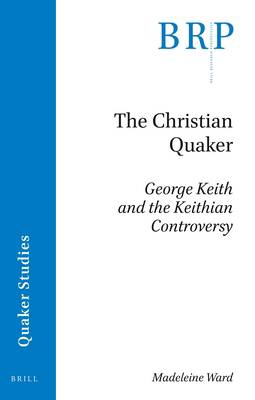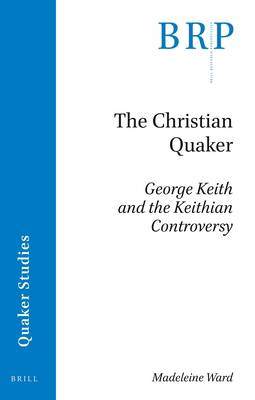
- Afhalen na 1 uur in een winkel met voorraad
- Gratis thuislevering in België vanaf € 30
- Ruim aanbod met 7 miljoen producten
- Afhalen na 1 uur in een winkel met voorraad
- Gratis thuislevering in België vanaf € 30
- Ruim aanbod met 7 miljoen producten
Zoeken
The Christian Quaker: George Keith and the Keithian Controversy
Madeleine Ward
€ 143,45
+ 286 punten
Omschrijving
How did the early Quakers understand the relationship between Quakerism and Christianity? Did they think faith in Jesus was necessary? What did they mean by the 'Light within'? These were the central issues in the Keithian controversy: an explosive schism which broke out among Philadelphian Quakers in the 1690s when George Keith - arguably the most influential Quaker theologian of the seventeenth century - was accused of focusing too heavily on the Incarnate Jesus in his preaching. Keith left the movement under a cloud, and the Keithian controversy has often been explained away in terms of personality and politics. However, this volume presents a theological reading of the dispute. Through a study of Keith's personal theological development, Madeleine Ward presents his departure from the movement as a significant case-study in the contested relationship between Quakerism and Christianity - and, ultimately, as a battle for the spiritual heart of the Religious Society of Friends.
Specificaties
Betrokkenen
- Auteur(s):
- Uitgeverij:
Inhoud
- Aantal bladzijden:
- 108
- Taal:
- Engels
- Reeks:
Eigenschappen
- Productcode (EAN):
- 9789004393578
- Verschijningsdatum:
- 7/03/2019
- Uitvoering:
- Paperback
- Formaat:
- Trade paperback (VS)
- Afmetingen:
- 152 mm x 231 mm
- Gewicht:
- 181 g

Alleen bij Standaard Boekhandel
+ 286 punten op je klantenkaart van Standaard Boekhandel
Beoordelingen
We publiceren alleen reviews die voldoen aan de voorwaarden voor reviews. Bekijk onze voorwaarden voor reviews.











